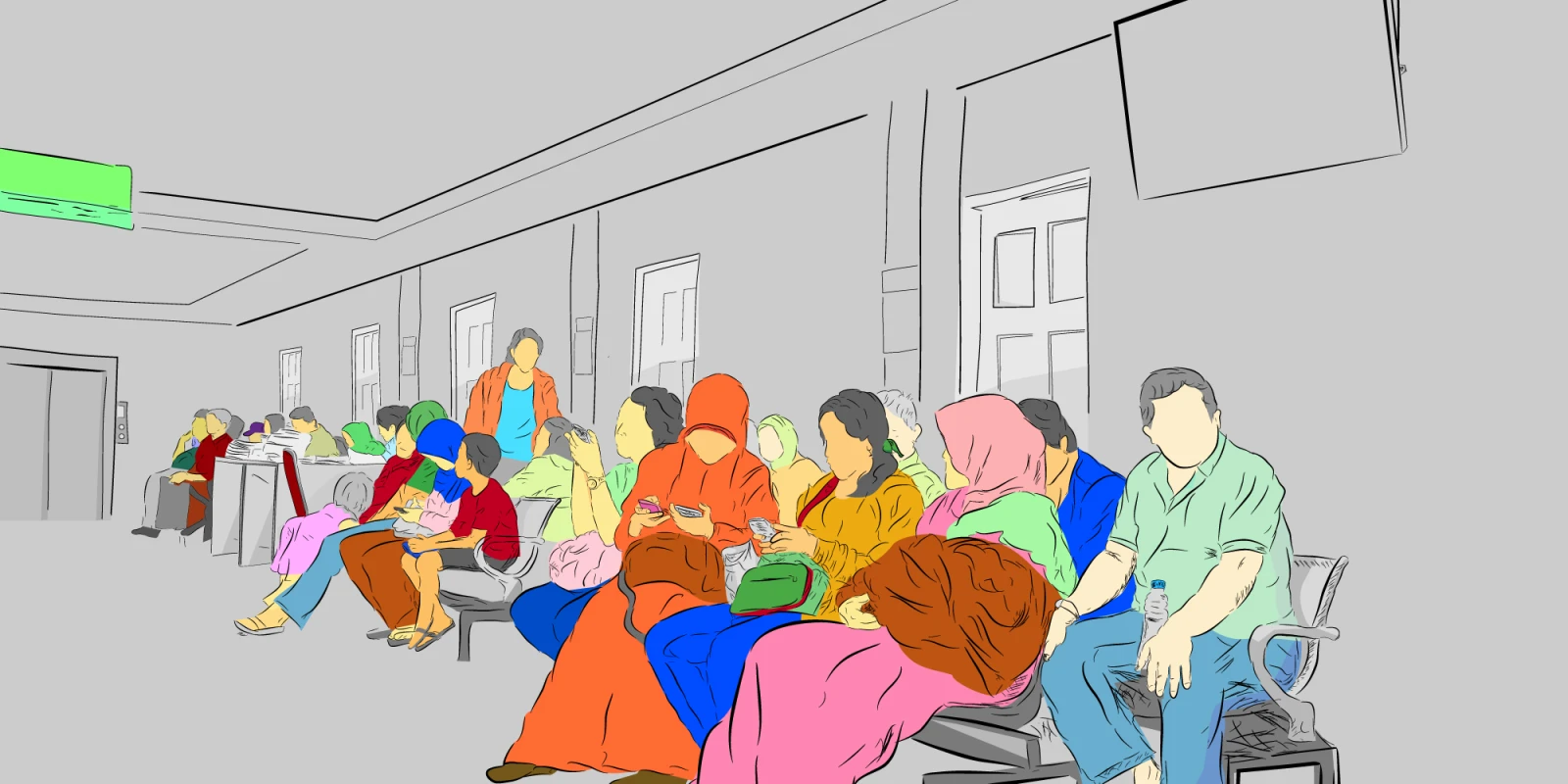
I saw them pop up on our pediatric urgent care's waiting room list in the span of minutes: a 3-day-old with "weight concerns" and a 7-day-old with "green poops". Ahead of them was a teen with "concern for chicken pox", an unimmunized toddler with symptoms of a whooping cough, and a few school-aged children with flu symptoms.
I quickly found our charge nurse and we brought both babies back to a corner room, as far from the contagion as possible.
Both patients were beautiful, vigorous, and healthy infants. Their parents' fatigue, inexperience, and natural anxiety at caring for such new and precious things had snowballed, prompting a late-night urgent care visit. "Weight concerns" ended up being the normal dip from birthweight all babies experience, while "green poops" were just typical transitional stools. Both issues were treated with education and reassurance.
As an acute care pediatrician, this situation is common. Too often, weary parents brave icy roads and sleep deprivation, their bodies still healing from Cesarean sections or vaginal tears, to make sure their newborn's rash or sleep pattern or congestion is not serious. We try to shelter them in covered car seats and get them home quickly, hoping they haven't caught any of the RSV, influenza, or MRSA circulating in the halls of our urgent care or emergency departments.
I am always happy to tell parents their infant is perfectly healthy. "It's challenging though," I say, "they don't exactly come with a manual. And newborns are good at doing things that seem strange but often are entirely normal."
And while I'm grateful to see their tensed faces relax, I worry about the system that has brought them to me. Our culture provides new parents with relatively little support after they take their newborn home. Sent with a sheath of discharge instructions, a few pamphlets, and a pediatrician visit scheduled, too many new moms and dads spend the first weeks of their child's life at home quite alone.
Some parents are lucky enough to have access to quality local support groups, nurse visiting programs, or the help of experienced family members. But for too many in the United States, this is still rare in many areas of the United States.
Isolated, they listen to every irregular breath, watch the color of each poop, stress through each late night awakening, wondering if any of it is normal or not, turning to Google, skimming the baby book they got at their shower, or maybe calling a nurse hotline at 3 a.m.
But with newborns, books, internet searches, and even phone calls don't cut it. All of us who have cared for neonates know they are tricky and hard to trust. They are either fine, or they're terribly ill, and the difference can be subtle. Vomiting can be reflux or pyloric stenosis. Sleepiness can be a normal adjustment in schedule or sepsis. Fussiness can be gas or meningitis. With tiny babes, in-person evaluation by a seasoned clinician is key. Other countries have realized this and have robust postpartum home visiting programs.
My friends and family in Europe are often shocked when they hear of our lonely postpartum routines. They expect the in-home checks their health systems routinely provide. Visiting often in the first few months, a nurse weighs their infant, helps with breastfeeding difficulties, reassures about rashes, teaches soothing and safe sleep techniques, and even helps with laundry. If their baby becomes truly ill—febrile, lethargic, irritable—then the nurse's experienced eye ensures prompt evaluation and treatment. If they head to the emergency department in the middle of the night, it is definitely necessary.
If only every family could have such support in those first weeks. There are many doing such work around the country, but only with more advocacy, research, and funding can we expand their reach. Perhaps then healthy babies will be saved the risk of our ED waiting rooms.
Dr. Julia Michie Bruckner is a pediatrician, mother, survivor of recurrent cancer, writer and 2018-2019 Doximity Author. You can find her at www.juliamd.com and @JuliaMDWriter.







